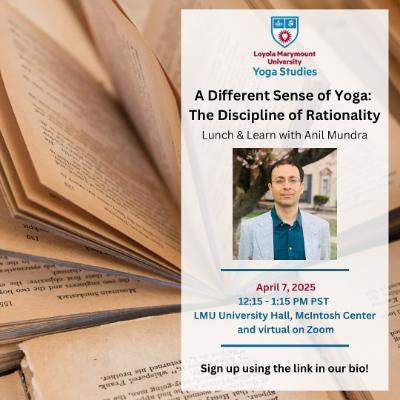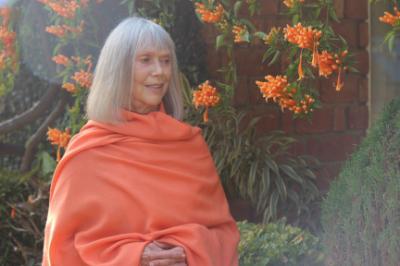Wednesday Night Lecture Series
Join the LMU Graduate Yoga Studies community for a series of free talks, open to the public.
-
"An Integral Advaitic Theodicy of Spiritual Evolution: Karma, Rebirth, and Universal Liberation"
Lecture by: Swami Medhananda, Ph.D.
Wednesday, November 8, 2023 at 7:30 PM PT - Join in-person or online
This talk will outline and defend a theodicy of spiritual evolution that takes its bearings from the thought of three modern Indian mystics: Sri Ramakrishna, Swami Vivekananda, and Sri Aurobindo. According to their theodicy, God has created this world as an arena for our moral and spiritual evolution in which evil and suffering are as necessary as good. The doctrine of spiritual evolution presupposes karma, rebirth, and universal liberation. The doctrines of karma and rebirth shift moral responsibility for evil from God to His creatures by explaining all instances of evil and suffering as the karmic consequence of their own past deeds, either in this life or in a previous life. The doctrine of universal liberation also has important theodical implications: the various finite evils of this life are outweighed by the infinite good of liberation that awaits us all. After outlining this modern Hindu theodicy, I address some of the main objections to the doctrines of karma and rebirth at its core.
Swami Medhananda is a monk of the Ramakrishna Order, currently serving as Senior Research Fellow in Philosophy at the Vedanta Society of Southern California in Hollywood. He is also the Hindu Chaplain at both UCLA and the University of Southern California. He is Section Editor for the International Journal of Hindu Studies (Springer), overseeing submissions in Hindu and Cross-Cultural Philosophy of Religion. From 2010 to 2021, he was Associate Professor and Head of the Program in Philosophy at the Ramakrishna Mission Vivekananda Educational and Research Institute in Belur Math, West Bengal. He earned his PhD in 2009 from the University of California at Berkeley, where he specialized in German aesthetics. He was also a Fulbright Scholar at the Humboldt-Universität zu Berlin (2006–7) and a Visiting Student at Oxford University (2000–1). His current research focuses on global philosophy of religion, religious epistemology, cosmopsychism, Indian scriptural hermeneutics, and Vedāntic philosophical traditions, especially the philosophies of Sri Ramakrishna, Swami Vivekananda, and Sri Aurobindo.
He is the author of over thirty journal articles and three books: Swami Vivekananda's Vedāntic Cosmopolitanism, Infinite Paths to Infinite Reality: Sri Ramakrishna and Cross-Cultural Philosophy of Religion, and The Dialectics of Aesthetic Agency: Revaluating German Aesthetics from Kant to Adorno. He is the editor of The Bloomsbury Research Handbook of Vedānta (2020) and co-editor, with Benedikt Paul Göcke, of Panentheism in Indian and Western Thought: Cosmopolitan Interventions. He is also the editor of two special issues of the International Journal of Hindu Studies, one on “Vedāntic Theodicies” (December 2021) and one on “Swami Vivekananda as a Cosmopolitan Thinker” (April 2023). He is currently writing a book on Karma and Rebirth in Hinduism, to be published by Cambridge University Press as part of the new series Cambridge Elements in Global Philosophy of Religion.If you plan on attending in person, please RSVP by November 1st, so we can accommodate your dietary needs.
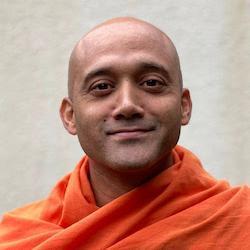
"Discourse on the Ātman in Jain Thoughts"
Lecture by: Abhishek Jain, Ph.D.
Wednesday, October 11, 2023 at 7:30 PM PT - Join in person or online
The talk will focus on the 9th-century treatise, entitled Ātmānuśāsana written by Ācārya Guṇabhadra, a South Indian Digambara Jain author. Poetically written in 270 Sanskrit verses, the treatise eloquently discourages readers from having worldly attachments. Many metaphors used in the treatise provide an explicit message that the root cause of the nature of the five sense objects (pañcendriyaviṣaya) is suffering. The author presents the sufferings that stem from engagement (āsakti) with the senses and encourages the audience to seek the way out, which ultimately leads the audience to study the scriptures (svādhyāya) and spirituality. The spiritual conceptions embedded in the treatise are thoughtfulness in attempting actions that make the audience aware of the trap of worldly affairs and show the uselessness of relations using logical arguments.
Abhishek Jain (Ph.D., Adam Mickiewicz University in Poznań, 2021) is currently Bhagwan Mallinath Visiting Assistant Professor of Jain Studies at Loyola Marymount University in Los Angeles. Prior to joining LMU, Abhishek was a Gonda Postdoctoral Fellow at Leiden University, The Netherlands. During his PhD, Abhishek conducted research at the University of Chicago, the University of Oxford, and Apabhramsha Sahitya Akademy in Jaipur. At LMU, Abhishek has been teaching undergraduate and graduate courses, namely Hinduism Jainism and Yoga, Comparative Theology, Sanskrit, and Jaina Yoga. The major focus of his research is on classical and modern South Asian languages and literature, literary theory, Classical Indian Philosophy, Jain Studies, and translation theory.
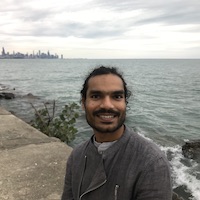
"The Somaesthetics of Hara Breathing in Zen Buddhist Meditation"
Lecture by: Jeff Ashton, Ph.D.
Wednesday, September 20, 2023 at 7:30 PM PT - Join in-person or online
Breath is the grounding phenomenon in many forms of Buddhist meditation. In the earliest meditative practices of Buddhism—ānāpānasati (“mindfulness of breathing”) and vipassanā (“insight meditation”)—the practitioner passively observes the breath, and from there surveys various physical and mental sensations in order to see things just as they are, including the nonduality of mind and body and how duḥkha ("suffering”) is not ultimately binding. Similarly, the “seated meditation” practice (zazen) deployed by Japanese Zen Buddhists begins with attention to breath, refines one’s attention to psycho-physical sensations, and fosters a realization of mind-body unity that enables the practitioner to confront duḥkha. But Japanese Zen adapts the respiratory philosophy of early Buddhism in some important respects. Focusing upon the Rinzai Zen tradition, specifically, this presentation explores four ways in which zazen adapts traditional Buddhist meditation:
- Bodily Posture is an essential feature of meditation.
- Mind-body nonduality is to be realized through the body: breathing as a physical performance, not an object of passive mental awareness, has primacy
- Active regulation of the breath from hara, where the lower abdomen remains expanded during both the inhalation and exhalation
- Use of the breath to not only attune one to a full-body sensation (namely, the sensation of gravity) but move energy along the vertical axis of the body in order to generate ki (Chinese: “chi”), the vital psycho-physical energy that unifies all things.
If time allows, I will close by identifying parallels between zazen and neidan, the internal alchemy of Chinese Daoism.
Professor Geoff Ashton is Associate Professor of Philosophy at the University of San Francisco. He has conducted research in Sanskrit, Thai, and Spanish, at numerous institutions of higher learning outside of the United States (twice as a Fulbright scholar), including Jawaharlal Nehru University (Delhi, India), Deccan College (Pune, India), the Jñāna-Pravaha Institute (Varanasi, India), Chiang Mai University (Chiang Mai, Thailand), Chulalongkorn University (Bangkok, Thailand), and La Universidad Autónoma de Madrid (Madrid, Spain). He has authored numerous articles, book chapters, and essays on Indian Philosophy, Buddhist Philosophy, Philosophy of Religion, Comparative Ethics, and Comparative Aesthetics. He is currently revising a manuscript on philosophy of nature in Indian philosophy. Another research project centers around the interrelation between meditative practice in Zen Buddhism and the phenomenology of gravity. Geoff Ashton is also a priest and dharma successor in the Chosei lineage of Zen.
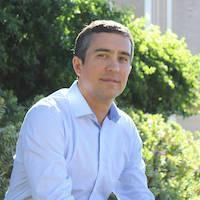
Lunch & Learn:
"Alchemy and Tantra: Intersections of South Asian Health and Healing"
Lecture by: Patricia Sauthoff
SPECIAL DATE: WEDNESDAY, FEBRUARY 22, 2023 | 12:00PM - 1:00PM PACIFIC TIME
In this talk, Dr. Sauthoff will discuss the relationship between Śaiva Tantric religion and South Asian alchemical practices called rasaśāstra. She will examine the alchemical corpus for the uses of mantras, prayers, and mythology that have their roots in tantric traditions. She will then discuss the introduction of mercury into South Asian medical practices and how this ingredient parallels to the embodied tantric understanding of male and female sexual fluids. Finally, she will discuss the perfected body (dehasiddhi) to explore how alchemical notions differ from those found in tantra and yoga.
Patricia Sauthoff, PhD, is an Assistant Lecturer in the University of Alberta's department of History, Classics and Religion. She has previously been a Postdoctoral Researcher on the European Research Council-funded AyurYog project and a Teaching Fellow at Nalanda University. She is the author of Illness and Immortality: Mantra, Maṇḍala, and Meditation in the Netra Tantra. She holds a PhD in South Asian Languages and Cultures from SOAS, University of London.
“Concept of Mind in Yoga and Sankhya Philosophy.”
Lecture by: Dr. N. Ganesh Rao
Wednesday, November 2, 2022
7:30 - 8:30 PM (PT)Dr. N. Ganesh Rao is a world-renowned Professor of Yoga Philosophy who has an unparalleled ability to integrate the philosophy and science of Yoga into practical applications for everyday life. He holds multiple graduate degrees and is a faculty at several universities, including Kaivalyadhama, the first scientific Yoga research institute in the world. He endeavors to enable people to transcend the physical, mental, psychological, and intellectual aspects of life in alignment with Yoga’s ultimate purpose. Throughout his impressive career, Dr. Rao has given lectures, provided training, and helped heal thousands of people across the globe. A professional soccer player and coach for twenty years, Dr. Rao embodies a rare combination of extreme physical fitness, intellectual prowess, and philosophical expertise.
WATCH THE LECTURE
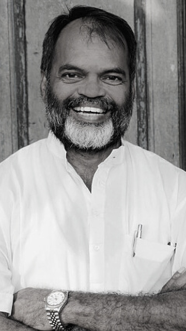
"Discoveries in the Yoga Sūtra"
Lecture by: Graham M. Schweig, Ph.D
SPECIAL DATE: MONDAY, OCTOBER 10TH, 2022
8:00- 9:00 PM(PT)
Lecture Description:
In preparation for his translation and interpretation of the Yoga Sūtra, to come out with Yale University Press in 2023, Schweig has discovered layered realms of the heart, hidden expressions of bhakti and shakti, and the Sūtra's raw conceptions of divinity and grace, when interpreted with elements from Vedānta, the Upanishads, Bhagavad Gītā, and the Bhāgavata Purāṇa.
About Graham M. Schweig, Ph.D. (ERYT500 | YACEP) has been a student of many traditional teachers of Yoga. He has traveled to India fourteen times, and has been a practitioner of meditational and heart-centered Yoga for over 50 years. Along side of his personal Yoga practice, Graham earned his doctorate from Harvard University in comparative religion, with a specialization in sacred Sanskrit literature focusing on Yoga and Bhakti.WATCH THE LECTURE
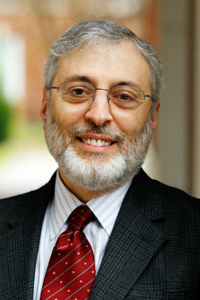
Beyond the Body: Yoga and Advaita in the 15th-16th Century
Lecture by: Zoë Slatoff
Wednesday, September 21st, 2022
7:30 - 8:30 PM (PT)Lecture Description:
Ask a modern yogī for the definition of the word "yoga" and they will often respond with the simple word "union." However, the Yoga Sūtra seems to indicate the opposite, advocating a disconnection of the self from the material world. By looking at the Aparokṣānubhūti and its commentaries, we are given a window into the vibrant conversation that led to these two approaches merging over time.
About Zoë Slatoff:
Earned her Ph.D. in Religion and Philosophy at Lancaster University, U.K. She is Clinical Professor of Sanskrit in the Yoga Studies program at Loyola Marymount University and author of Yogāvatāraṇaṃ: The Translation of Yoga, a Sanskrit textbook for Yoga students.

The Pashupata System of Yoga: Reflections on the Pashupata Sutra
Lecture by: Dr. Sthaneshwar Timalsina
Wednesday, April 20, 2022
7:30 - 8:30 PM (PT)Lecture Description:
Dr. Timalsina will bring to attention the Yoga as described in the Kauṇḍinya's commentary upon the Pashupata Sutra in light of the ways Pashupata system has been summarized by Vidyaranya in his Sarvadarshana Sangraha.About Dr. Sthaneshwar Timalsina:
WATCH THE LECTURE
Professor (San Diego State University), completed his Acharya (Masters) in Yogatantra with a focus on Trika System from Sampurnananda University and completed his PhD from Martin Luther University, Germany, with a focus on Advaita philosophy. He started the Department of Tantric Studies in Kathmandu, Nepal, before moving to USA, and in America, he has taught religions and philosophies in four different Universities. He has published five books and more than eighty articles and book chapters with a focus on Vedanta, Trika philosophy, Abhinavagupta, and comparative philosophies. He has recently started Vimarsha Foundation with an objective to conserve and promote Trika and Agamic traditions as well as Vedanta, Yoga, and various modes of Hindu Philosophy.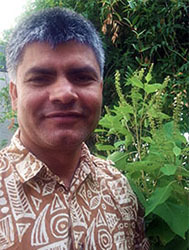
Subtle Bodies, Robot Immortality and a Fermentation Model of Self.
Lecture by: Loriliai BiernackiWednesday, March 16, 2022
7:30 - 8:30 PM (PT)
Lecture Description:
This presentation looks at the subtle body in relation to both a contemporary biology and a current technology of transhumanism. As hopeful Google tech entrepeneurs like Ray Kurzweil propose, a technological promise of a human immortality is within reach, with the idea of an encodable self, its memories and desires as so many bits of information that might be detached from the physical body and transferred into a durable metallic body. I counter this here with a different model for self, a microbiological metaphor for thinking about incarnation and the body, a fermentation metaphor, what I will call here a yogurt model for self. This draws on Indian ideas of the subtle body to give us a different way of thinking about incarnation. We will look at images from Tantra, at the slippery boundaries where a person leaves the body, disincarnates, particularly while still alive. I will give two examples that reveal a sense of the slippage between the body and the subtle body that can move between bodies in the case of yogis who leave their meditating bodies to inhabit other bodies.
About Lorillai Biernacki:
Loriliai Biernacki teaches in the Department of Religious Studies at the University of Colorado at Boulder. Her research interests include Hinduism, gender, New Materialism and the interface between religion and science. Her first book, Renowned Goddess of Desire: Women, Sex and Speech in Tantra (Oxford, 2007) won the Kayden Award in 2008. She is co-editor of God’s Body: Panentheism across the World’s Religious Traditions (Oxford 2013) and has a new book coming out with Oxford in 2022 on Abhinavagupta, panentheism and New Materialism, titled: The Matter of Wonder: Abhinavagupta’s Panentheism and New Materialism.Watch the lectuRE
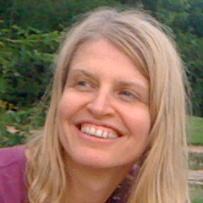
"Samadhi in the Bhagavata Purana"
Lecture by: Edwin Bryant
Wednesday, February 9, 2022
7:30 - 8:30 PM (PT)Lecture Description:
WATCH THE LECTURE
Real life dhyana yoga in the Hindu traditions has always been predominantly focused on one of the many forms of Isvara, as evidenced in the vast Puranic corpus that informs on the ground meditational practices. In this session, we will first briefly engage the Isvara verses in Patanjali, then consider some of the Isvara-centric expressions this focus takes in some of the dominant theistic traditions of Hinduism, and, finally, focus in more depth on how the eight-limbed sa-Isvara yoga process is depicted in the Bhagavata Purana. We will read several relevant passages together, which will also cause us to engage Vedantic notions of the soteriological relationship between sa-guna and nir-guna modalities of Brahman in samadhi states.
About Edwin Bryant:
Edwin Bryant received his Ph.D in Indic languages and Cultures from Columbia University, where his thesis culminated in his first book: The Quest for the Origins of Vedic Culture (Oxford University Press, 2001). As a personal practitioner of bhakti yoga for over 45 years, Edwin strives to combine academic scholarship and rigor with appreciation towards traditional knowledge systems. His teaching method is to allow the ancient texts to speak in their own voice and through their own terms and categories.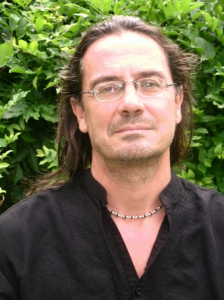
"Moon Salutations: Bringing Feminine Embodiment into Yoga Practice"
Lecture by: Laura Jean Cornell, PhD
Wednesday, November 17, 2021
7:30 - 8:30 PM (PT)Lecture Description:
While traditional Sun Salutation Yoga embraces solar or masculine qualities, the Moon Salutation fills the need for our lunar, feminine qualities. It supports the female body during menstruation, pregnancy, and menopause and is also balancing spiritually and psychologically for both men and women. In this evening session you will experience the Moon Salutation sequence and learn the story of its creation.About Laura Jean Cornell:
Laura Jean Cornell, (Yogeshwari), is an award-winning speaker, author, and business mentor. She is Founder of Divine Feminine Yoga, dedicated to helping women heal ~ body, mind, and soul ~ so they can contribute to healing the planet. She has directed eight online conferences empowering women through Yoga, and currently offers writing circles, private coaching, retreats, online courses, and entrepreneurial training.
Laura is author of the books Moon Salutations: Women’s Journey Through Yoga to Healing, Power, and Peace, and Awakening the Divine Feminine: 18 Stories of Healing, Inspiration, and Empowerment.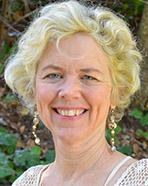
"Tracing the Path of Yoga: The History and Philosophy of Indian Mind-Body Discipline"
Lecture by: Stuart Ray Sarbacker
Wednesday, October 27, 2021
7:30 - 8:30 PM (PT)Lecture Description:
Clear, accessible, and meticulously annotated, Tracing the Path of Yoga offers a comprehensive survey of the history and philosophy of yoga that will be invaluable to both specialists and to non-specialists seeking a deeper understanding of this fascinating subject. Stuart Ray Sarbacker argues that yoga can be understood first and foremost as a discipline of mind and body that is represented in its narrative and philosophical literature as resulting in both numinous and cessative accomplishments that correspond, respectively, to the attainment of this-worldly power and otherworldly liberation. Sarbacker demonstrates how the yogic quest for perfection as such is situated within the concrete realities of human life, intersecting with issues of politics, economics, class, gender, and sexuality, as well as reflecting larger Indic religious and philosophical ideals.WATCH THE LECTUREAbout Stuart Ray Sarbacker:
Stuart Ray Sarbacker is Associate Professor of Philosophy and Religion at Oregon State University. He is the author of Samādhi: The Numinous and Cessative in Indo-Tibetan Yoga, also published by SUNY Press, and (with Kevin Kimple) The Eight Limbs of Yoga: A Handbook for Living Yoga Philosophy.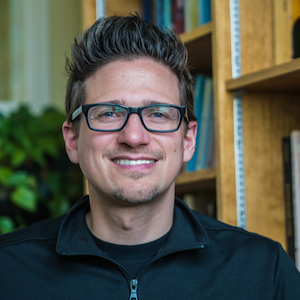
"An Evening with Dr. Farah Godrej"
Lecture by Dr. Farah Godrej
Wednesday, April 7, 2021
ABOUT DR. FARAH GODREJ:
Farah Godrej is Associate Professor of Political Science at the University of California, Riverside. Her areas of research and teaching include Indian political thought, Gandhi’s political thought, cosmopolitanism, globalization and comparative political theory. She also studies contemporary issues of justice and inequity in environmentalism, food justice and mass incarceration. Her research appears in journals such as Political Theory, Political Research Quarterly, Theory & Event, The Review of Politics, and Polity, and she is the author of Cosmopolitan Political Thought: Method, Practice, Discipline (New York: Oxford University Press, 2011). Her forthcoming book (Oxford University Press, 2021) examines the role of yogic and meditative practices in U.S. prisons.
LECTURE DESCRIPTION:
Farah Godrej will discuss her forthcoming book, Freedom Inside?: Yoga and Meditation in the Carceral State (Oxford University Press, 2021). The book offers a combination of personal narrative and scholarly research in order to examine the role of yoga and meditation in U.S. prisons. It offers a glimpse inside the system now known as mass incarceration, which disproportionately punishes, confines, and controls those from black, brown and poor communities at exponentially higher rates, diminishing their life-chances and creating a vast underclass of disempowered, subordinated citizens. How do self-disciplinary practices such as yoga and meditation work when they are taught inside unjust systems? Do they produce political passivity, quietism, and compliance, if offered as palliatives to accept, cope and comply with unjust power structures? Or, might they prove disruptive to mass incarceration, if offered as tools to develop awareness and attunement toward injustice, to engage in non-conformist responses that include critique and challenge? The book explores both the promises and pitfalls of yoga and meditation when taught in prisons in different ways. It is is based on four years of immersion in prisons and prison volunteer communities, along with ethnographic work inside a jail, and over sixty in-depth interviews with those who teach and practice inside prisons. It interweaves academic narratives with personal experiences of collaboration with volunteers and incarcerated practitioners.
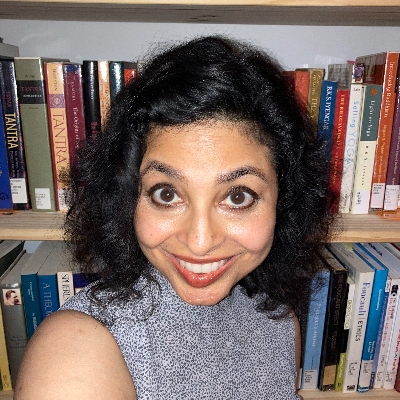
"An Evening with Dr. Arti Dhand"
Lecture by Dr. Arti Dhand
Wednesday, March 10, 2021
ABOUT DR. ARTI DHAND:
Arti Dhand is Associate Professor at the Department for the Study of Religion, University of Toronto. She works on the Sanskrit epics, the Ramayana and the Mahabharata, focusing particularly on questions of gender and ethics. Her current work is a comparative study of the two great works, The Twin Epics of Hinduism.
LECTURE DESCRIPTION:
"The Mahabharata Podcast: Storytelling in the Time of Plague"
Arti Dhand discusses The Mahabharata Podcast – its genesis amid the pandemic, its appeal to a multi-ethnic, multi-religious, multi-cultural globalized audience, and the epic's continued relevance to the modern world.
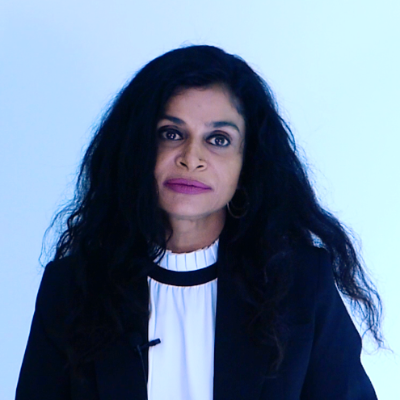
"The Construction of Consciousness"
Lecture by Dr. Lou Cozolino
Tuesday, February 2, 2021
LECTURE DESCRIPTION
In this presentation, Dr. Lou Cozolino will explore recent discoveries in neuroscience of conscious awareness and how they relate to Buddhist practice and philosophy.
ABOUT DR. LOU COZOLINO
Dr. Cozolino has diverse clinical and research interests and hold degrees in philosophy, theology, and clinical psychology. His interests are in the areas of the synthesis of neuroscience with psychotherapy, education, management, and leadership. He is the author of ten books including The Neuroscience of Psychotherapy, The Neuroscience of Human Relationships, Timeless, Attachment-Based Teaching, The Making of a Therapist, and Why Therapy Works. He has also authored and co-authored articles and book chapters on child abuse, schizophrenia, education, language and cognition. Dr. Cozolino lectures around the world on brain development, evolution, and psychotherapy and maintains and clinical and consulting practice in Los Angeles.
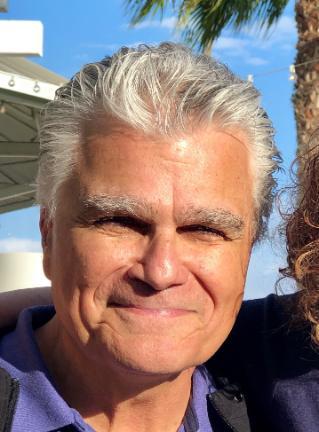
"Living Within a Universe Story"
Lecture by Mary Evelyn Tucker
Wednesday, November 11, 2020
LECTURE DESCRIPTION
We are being called to a new mode of being human in the age of the Anthropocene. We are discovering our role within a vast evolving universe that gave birth to us and that orients and grounds us. We are seeking ways to nurture ourselves and the life community in an age of disruption and diminishment.Inspired by Thomas Berry, Journey of the Universe narrates the epic story of the unfolding of the Universe, Earth, and humans over billions of years. Our discussion will explore this Emmy Award winning film, book, and conversation series that can inspire transformative and healing change for a flourishing future. www.journeyoftheuniverse.org
ABOUT MARY EVELYN TUCKER
Mary Evelyn Tucker is co-director of the Yale Forum on Religion and Ecology where she teaches in an MA program between the School of the Environment and the Divinity School. With John Grim she organized 10 conferences on World Religions and Ecology at Harvard. They were series editors for the 10 resulting volumes from Harvard. She co-edited Confucianism and Ecology, Buddhism and Ecology, and Hinduism and Ecology. She has authored with John Grim, Ecology and Religion (Island Press, 2014). They also edited Thomas Berry’s books including Selected Writings (Orbis 2014). Tucker and Grim published Thomas Berry: A Biography (Columbia University Press, 2019). With Brian Thomas Swimme she wrote Journey of the Universe (Yale 2011) and was the executive producer of the Emmy award winning Journey film that aired on PBS. She served on the International Earth Charter Drafting Committee and was a member of the Earth Charter International Council.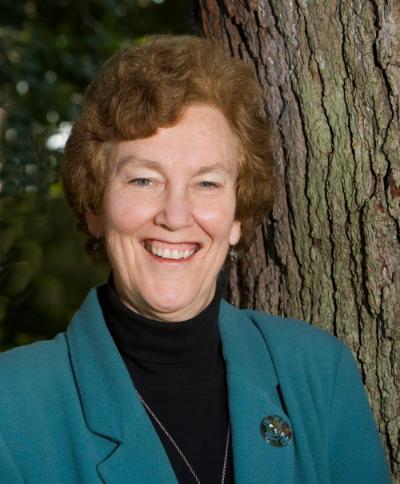
"White Utopias: The Religious Exoticism of Transformational Festivals"
Lecture by Dr. Amanda Lucia
Wednesday, October 7, 2020
LECTURE DESCRIPTION
In White Utopias: The Religious Exoticism of Transformational Festivals, religion scholar Amanda Lucia supplies a detailed account of the religious practices of communities of the “spiritual but not religious” (SBNR). For nine years of ethnographic research, Lucia followed yoga practitioners through the transformational festival circuit and analyzed both yoga classes and transformational festivals as important educational spaces for disseminating contemporary spiritual values. In this talk, Lucia focuses particularly on the practice of yoga and discusses the yogic field’s preoccupation with authenticity as a strategy of cultural appropriation. Lucia’s research analyzes various authenticating strategies and demonstrates their interdependence with the predominantly white demographics of yoga in the United States.ABOUT DR. AMANDA LUCIA
Amanda Lucia is Associate Professor of Religious Studies at the University of California-Riverside. Her research engages the global exportation, appropriation, and circulation of Hinduism. She is author of White Utopias: The Religious Exoticism of Transformational Festivals (2020), Reflections of Amma: Devotees in a Global Embrace (2014), and numerous articles. She is currently crafting a body of research on sexual abuse in guru-led religious communities.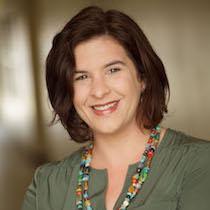
An Evening with Dr. Shanti Shanti Kaur Khalsa
January 29, 2020
Dr. Shanti Shanti Kaur Khalsa is a kundalini yoga therapist who will speak on the Psychology of Health Recovery.
Shanti Shanti Kaur Khalsa, PhD, C-IAYT, YACEP aligns the ancient teachings of Kundalini Yoga with modern medicine as Founding Director of the Guru Ram Das Center for Medicine & Humanology. Under the guidance of Yogi Bhajan she developed and directs the 3-year 1,000 hour IAYT accredited International Kundalini Yoga Therapy Professional Training.
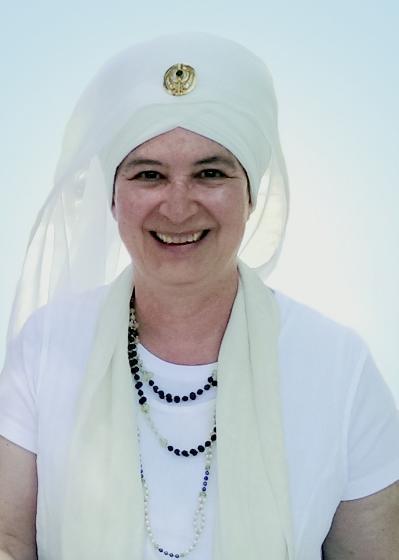
Artist with a Camera: An Evening with Robert Sturman
November 13, 2019
Lecture by Robert Sturman
A dedicated yoga practitioner, photographer Robert Sturman has increasingly focused on capturing the timeless grace and embodied mindfulness of asana in his work. His stunning repertoire runs the gamut from yogis perched on rocks surrounded by the Pacific Ocean, to African orphans practicing yoga in Kenya, to breast cancer survivors, bare-chested and scarred. In addition, Sturman has worked extensively photographing war veterans who have embraced the practice of yoga to heal PTSD, in an effort to help change the heartbreaking statistics of veteran suicides each day.
Sturman's honors include Official Artist of the 47th Annual GRAMMY Awards, 2010 FIFA World Cup Artist Representing America, and Official Artist 2008 United States Olympics. Sturman has been the subject of two separate New York Times articles celebrating his photographs of yoga from around the world.

Teachings of the Sages: Living Purposefully, Dying Gracefully
October 16, 2019
Lecture by Swami Ma Radha Bharati, a disciple of Swami Rama, Swami Veda, and the Himalayan Tradition
Since 1970, Swami Ma Radha Bharati has studied, practiced and taught the principles of the Himalayan Tradition throughout the world. She has served as founding counsel and director of the Gurukulam at Swami Rama Sadhaka Grama, and frequently guides the participants of silence and sadhana retreats. She holds an MA and has done Ph.D. work in comparative philosophy and ethics.
